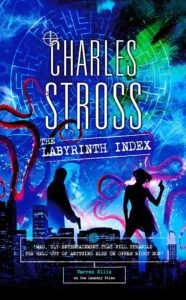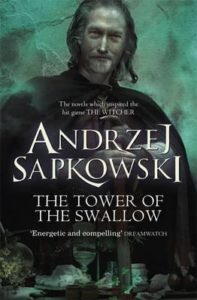Oh, man, Book 3 cannot come fast enough!
I readily admit that I don’t remember a whole lot from the first book, which was an intriguing novel of ideas that somehow lacked an ability to engage me emotionally. Fleet Of Knives certainly doesn’t suffer from that problem! We open with Captain Sal Konstanz on a pilgrimage of sorts, with her ship Trouble Dog on overwatch. Sal is trying to patch things up with security officer Alva Clay after the events of the last novel, and the two women reach a sort of tentative peace even as they become aware of the suspicions that the rest of humanity hold against the Marble Armada, as the unmanned fleet that Sal, Alva and Trouble Dog discovered is now known. They soon have more immediate things to worry about, however, when their bosses at the House Of Reclamation send them to the edge of alien Nymtoq territory in response to a distress call from human starship Lucy’s Ghost.
Lucy’s Ghost is captained by Lucky Johnny Schultz, a rogue trader pushed to the limits of legality to pay his crew. To this end, he’s decided to have them raid an abandoned, if still venerated, Nymtoq generation ship, but finds that their passage through hyperspace has brought along unwelcome visitors.
Elsewhere in the known universe, former poet Ona Sudak has been found guilty of war crimes, and is set to face execution. But the Marble Armada has plans that will set her on a collision course with Trouble Dog, even as she plots to save the Human Generality from itself.
This book was such a ride, switching quickly and smoothly between points of view to present a really terrific space opera. The personalities of all involved felt so alive, even as everyone worked towards their different ends. Gareth Powell plots deftly, and writes with an eye for both action and humor. When I hit the last page, I nearly jumped out of my seat with outrage: I want to know what happens next, and now! That said, it’s a good ending — I hate when books feel incomplete and this one certainly doesn’t. I’m just impatient for the rest of the story! FoK also contains the best two-word chapter I’ve ever had the privilege of reading.
Interview with Mr Powell himself to come soon!






